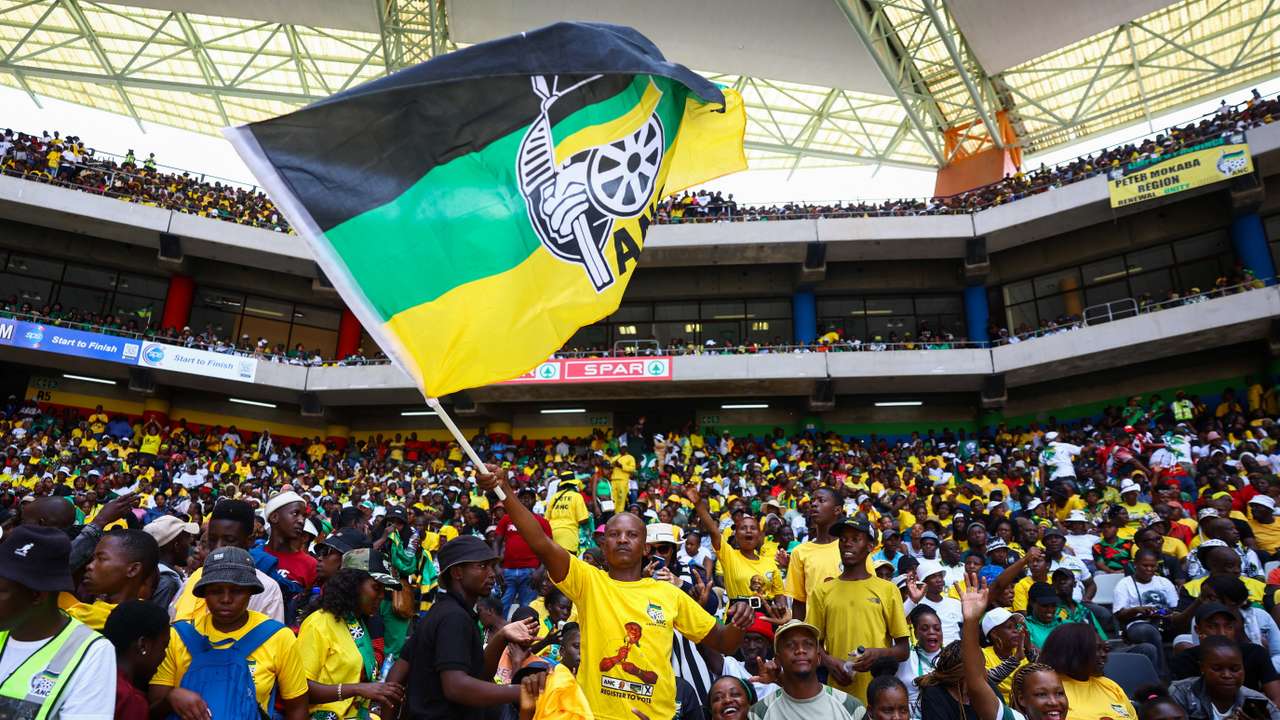From Mandela to Ramaphosa: A look back at South Africa's elections since 1994

South Africans go to the polls on May 29 in a pivotal election that marks thirty years after Nelson Mandela led the nation away from the apartheid era.
Since then, the nation once governed by a white minority has had 5 black presidents; Nelson Mandela (1994-1999), Thabo Mbeki (1999-2008), Kgalema Motlanthe (2008-2009), Jacob Zuma (2009-2018), Cyril Ramaphosa (2018-present) all come from the dominant African National Congress (ANC).
While recent reports have been centred on the potential end to the ANC’s dominance and ex-president Jacob Zuma’s eligibility to run for office, there are 14,889 candidates, including 70 political parties and 11 independents contesting 887 seats in this landmark 2024 election.
Here is a brief history of the elections that have taken place in the country since 1994:
1994 election
The 1994 South African general election marked a significant event, ending apartheid and allowing citizens of all races to participate. With over 19 million votes counted, the ANC led by Nelson Mandela won 62.5% of the vote becoming the country's first black president, symbolising a new era for South Africa. Freedom Day, a public holiday on April 27 commemorates the election's significance.
1999 election
The 1999 South African general election, held on June 2nd, resulted in a landslide victory for the ANC, which increased its majority by over 66%. This election was particularly notable as Nelson Mandela, the incumbent President, chose not to seek re-election due to his age and was succeeded by Thabo Mbeki. The election saw a high voter turnout, with over 89% of registered voters participating, reflecting the citizens' engagement in the democratic process.
2004 election
The 2004 South African general election, held on April 14, marked the third democratic election since the end of apartheid. The ANC, led by President Thabo Mbeki, secured a significant victory, obtaining 69.7% of the votes and an increased majority in the National Assembly. This election was notable for the ANC's ability to potentially amend the constitution due to its large majority.
2009 election
In 2009, under the new presidency of Jacob Zuma, the ANC's share dropped to 65.9%. This election was also notable for the breakaway of former ANC members to form the Congress of the People (COPE).
2014 election
The 2014 South African general election, held on May 7, was the first following the passing of Nelson Mandela. The elections saw the ANC’s share reduce further to 62.15%, amid growing public dissatisfaction under the leadership of Jacob Zuma and the emergence of the Economic Freedom Fighters (EFF), a party formed in 2013 by former ANC member and 2024 presidential candidate Julius Malema as a significant political force.
2019 election
In 2019, under President Cyril Ramaphosa, the ANC's majority dipped below 60% for the first time, securing 57.5% of the vote. This election highlighted the increasing fragmentation of the South African political landscape and the rise of opposition parties.
2024 election
The upcoming 2024 election has been described as potentially transformative, with the ANC facing its toughest challenge yet. For the first time, independent candidates were allowed to stand, and the ANC's dominance was threatened amid concerns over unemployment, crime rates, and economic management. The election employed a proportional representation system, with voters receiving three ballots to elect the National Assembly and provincial legislatures.
Each election has been conducted by the Independent Electoral Commission (IEC), which has been praised for its management of the electoral process. However, the IEC has also faced challenges, including logistical issues and allegations of irregularities. Despite these challenges, South Africa's electoral process has been largely peaceful and is considered a model for other emerging democracies.
This story is written and edited by the Global South World team, you can contact us here.